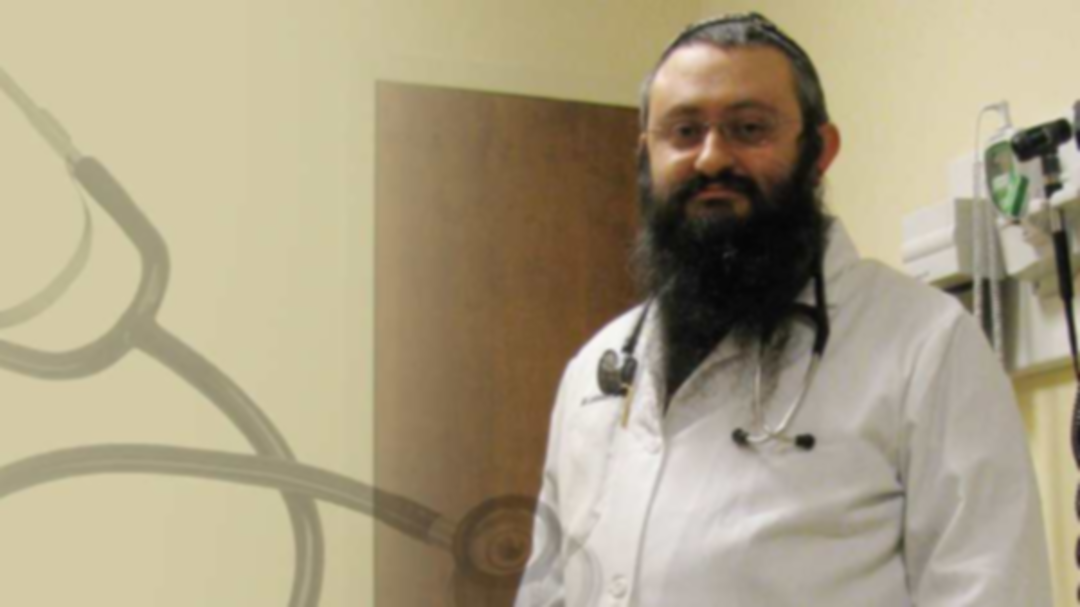-
New York doctor touts use of hydroxychloroquine as coronavirus treatment

A New York doctor says he has successfully treated coronavirus patients' symptoms using hydroxychloroquine sulfate, zinc, and azithromycin.
Dr. Vladimir Zelenko is a registered family doctor in Monroe, New York, where he runs two clinics and has said he has successfully treated respiratory symptoms of 699 coronavirus patients using a cocktail of the drugs, including the antimalarial drug hydroxychloroquine, a derivative of chloroquine.
Zelenko said shortness of breath in patients subsided within four to six hours after treatment. He said that none of his patients had died or required intubation and four had been hospitalized.
On Sunday, the US Food and Drug Administration (FDA) authorized the use of the two antimalarial drugs, hydroxychloroquine, and chloroquine for limited emergency use.
“In a statement published Sunday, the US Department of Health and Human Services detailed recent donations of medicine to a national stockpile – including chloroquine and hydroxychloroquine, both being investigated as potential COVID-19 treatments,” AFP reported.
Despite being controversial, Zelenko is confident in the treatment and said it has been 100 percent effective. It costs $20 for over five days.
Chloroquine’s use, which is also used to treat lupus and rheumatoid arthritis, is debated as it can have toxic side effects and has been made illegal in at least one country. The World Health Organization has not approved its use for symptomatic treatment of coronavirus.
Some medical professionals are wary of the drug’s use, and there are no clinical trials that prove the drug’s efficacy. Dr. Anthony Fauci, the US’s top infectious disease expert, has said that without a clinical trial, no definitive statement can be made on the drug’s effectiveness.
And small trials on the drug’s efficacy have split results. One French study of 80 patients found a combination of hydroxychloroquine and azithromycin was effective in treating COVID-19 patients. But in China, a study published in the Journal of Zhejiang University found no difference in the ability to fight off the virus between patients who did and did not receive hydroxychloroquine. The study included 30 patients, and 15 were given the drug. After a week of treatment, 13 tested negative; of those who did not receive treatment, 14 tested negative.
Regionally, Bahrain has used hydroxychloroquine to treat sick patients.
Hydroxychloroquine “is reported to have had a profound impact when used to treat the symptoms exhibited by active COVID-19 cases,” state news agency BNA reported.
Chloroquine was first developed in the 1940s to treat malaria. In 1949, it was approved by the FDA for this specific use.
A 2005 study found that chloroquine could prevent the spread of the SARS-CoV, commonly known as SARS, virus in primate cells grown in a lab. The novel coronavirus or SARS-CoV-2 is from the same family of coronaviruses as SARS-CoV, and treatments for the novel coronavirus could be similar to those used for its predecessor. levant
source: Lauren Holtmeier levant
You May Also Like
Popular Posts
Caricature
BENEFIT Sponsors BuildHer...
- April 23, 2025
BENEFIT, the Kingdom’s innovator and leading company in Fintech and electronic financial transactions service, has sponsored the BuildHer CityHack 2025 Hackathon, a two-day event spearheaded by the College of Engineering and Technology at the Royal University for Women (RUW).
Aimed at secondary school students, the event brought together a distinguished group of academic professionals and technology experts to mentor and inspire young participants.
More than 100 high school students from across the Kingdom of Bahrain took part in the hackathon, which featured an intensive programme of training workshops and hands-on sessions. These activities were tailored to enhance participants’ critical thinking, collaborative problem-solving, and team-building capabilities, while also encouraging the development of practical and sustainable solutions to contemporary challenges using modern technological tools.
BENEFIT’s Chief Executive Mr. Abdulwahed AlJanahi, commented: “Our support for this educational hackathon reflects our long-term strategic vision to nurture the talents of emerging national youth and empower the next generation of accomplished female leaders in technology. By fostering creativity and innovation, we aim to contribute meaningfully to Bahrain’s comprehensive development goals and align with the aspirations outlined in the Kingdom’s Vision 2030—an ambition in which BENEFIT plays a central role.”
Professor Riyadh Yousif Hamzah, President of the Royal University for Women, commented: “This initiative reflects our commitment to advancing women in STEM fields. We're cultivating a generation of creative, solution-driven female leaders who will drive national development. Our partnership with BENEFIT exemplifies the powerful synergy between academia and private sector in supporting educational innovation.”
Hanan Abdulla Hasan, Senior Manager, PR & Communication at BENEFIT, said: “We are honoured to collaborate with RUW in supporting this remarkable technology-focused event. It highlights our commitment to social responsibility, and our ongoing efforts to enhance the digital and innovation capabilities of young Bahraini women and foster their ability to harness technological tools in the service of a smarter, more sustainable future.”
For his part, Dr. Humam ElAgha, Acting Dean of the College of Engineering and Technology at the University, said: “BuildHer CityHack 2025 embodies our hands-on approach to education. By tackling real-world problems through creative thinking and sustainable solutions, we're preparing women to thrive in the knowledge economy – a cornerstone of the University's vision.”
opinion
Report
ads
Newsletter
Subscribe to our mailing list to get the new updates!






















